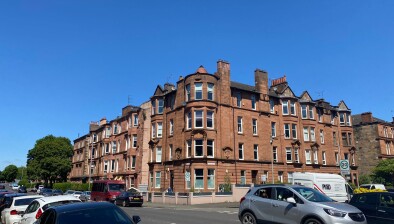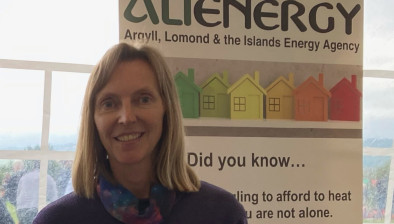MSPs back government’s fuel poverty legislation but demand further action
A Bill outlining new measures to tackle fuel poverty has been given approval in the Scottish Parliament despite concerns the plans “lack ambition”.

MSPs agreed to the general principles of the Fuel Poverty (Target, Definition and Strategy) (Scotland) Bill, which has three main aims.
The first to set a target that, by 2040, no more than 5% of Scottish households are in fuel poverty with the second to establish a new definition of fuel poverty that better aligns fuel poverty with relative income poverty. Third, the Bill ensures that a new, long term Fuel Poverty Strategy be prepared, published and laid before Parliament – a draft of which has already been published.
Introducing the Bill at its first stage, Kevin Stewart, minister for local government, housing and planning, said: “In this day and age, it is unacceptable that any Scottish household should have to choose between having the heating on and cooking their dinner. To become a fairer and just society, it is crucial that we make real headway towards ending the scourge of fuel poverty.
“Within this ground breaking legislation, not only are we one of the few countries in the world to define fuel poverty, we are also setting a goal towards eradicating it. By changing the definition of fuel poverty so it’s more closely aligned to relative income poverty and taking steps to ensure it works for remote rural and island communities, we are ensuring our support is focussed on those who need it most.
“I am passionate about this Bill and I look forward to working with partners on the development of our final Fuel Poverty Strategy which will also include the views of people with lived experience of fuel poverty. I know that the work we are doing around fuel poverty and energy efficiency has and will continue to transform people’s lives – making our homes warmer, greener and more energy efficient.”
Under the Bill, the government will report every five years on the policy’s progress, although convener of the local government and communities committee, James Dornan, argued for this to happen every three years.
Mr Dornan said: “Recent statistics shows that fuel poverty affects 24.9% of households in Scotland, with some people and families struggling to pay for their fuel bills or heat their homes to an acceptable and comfortable level.
“This Bill has the potential to make a difference to the lives of many families in Scotland.
“However, the real test will be whether the measures and strategies that are coming are practical, deliverable and robust.
“It will be the job of this Parliament to keep a watch on this in the coming years.”
Opposition MSPs also urged the Scottish Government to make the legislation tougher – with Green MSP Andy Wightman suggesting the 5% target could possibly be achieved by 2032 instead of 2040.
Mr Wightman said his party would bring forward amendments to the legislation at Stage 2, as he told MSPs: “A 2032 target does reflect a higher level of ambition and is preferable.
“And if it cannot be achieved we will know in advance.”
He said: “This Bill does represent an important part of tackling fuel poverty – but it’s not in a fit state to deliver what is required.”
Scottish Conservative MSP Paul Simpson, who sits on the local government committee that scrutinised the plans, described the proposals as “well meaning, but they lack ambition”.
He said: “This should have been a far-reaching and exciting piece of legislation, but it’s anything but.
“It can change, though. You could replace the six pages of the Bill with a six-line press release and achieve the same thing.”
However, he welcomed the provisions for islands and remote parts of the country and added: “Fuel poverty rates in urban Scotland have improved since 2015, but rates in rural areas have not.”
Meanwhile Labour’s Pauline McNeill said the proposals “fall short in many areas”.
She added: “It has to sound more like real ambition to prevent more people from living in cold, draughty homes.”
Liberal Democrat Liam McArthur said it is “essential we show more ambition in what we seek to achieve”.
The Orkney MSP spoke about the higher heating bills people living in remote and island communities can face, as he argued the Bill does “not as it stands adequately take into account the additional costs associated with living in remote and rural areas of Scotland”.
In 2015, the government set up two short life, independent bodies to report on fuel poverty - the Fuel Poverty Strategic Working Group and the Scottish Rural Fuel Poverty Task Force.
Following on from their reports, an independent, academic panel was tasked with reviewing the definition of fuel poverty and the majority of its recommendations have been incorporated into the definition of fuel poverty in the Bill.
The Fuel Poverty Advisory Panel and Partnership Forum were established as part of a new framework for monitoring the progress in tackling fuel poverty and advising the government.
The government also ran a fuel poverty strategy consultation prior to publishing a draft fuel poverty strategy alongside the Bill.
The local government and communities committee had recommended that the Fuel Poverty (Target, Definition and Strategy) (Scotland) Bill should progress to Stage 2.







